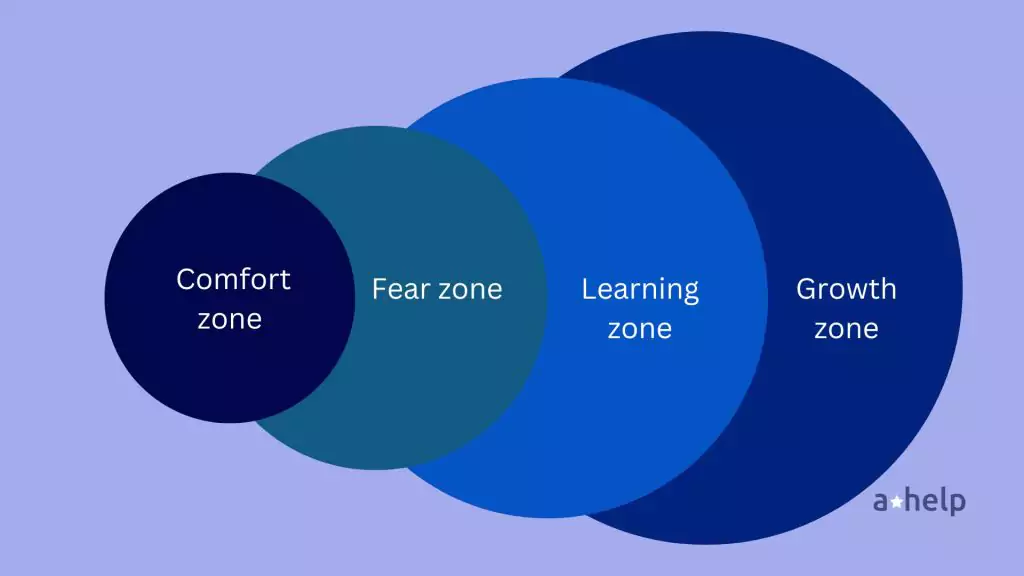Whether it is the imposter syndrome that drives you nuts, or the real lack of knowledge and experience, or limited and high-standard job vacancies, or prevalence of AI at the working place, you might feel like you are not on the right path to achieve your long-awaited dream of becoming a coder. And you are not alone who wonders through self-doubt or stuck in a rut of struggles.

✅ AI Essay Writer ✅ AI Detector ✅ Plagchecker ✅ Paraphraser
✅ Summarizer ✅ Citation Generator
Key Takeaways:
- Imposter syndrome is a common phenomenon in the tech world, but it’s important to understand that it reflects personal perceptions, not actual skill levels.
- Overcoming self-doubt and challenges in the coding journey requires passion, persistence, community support, and focusing on problem-solving logic rather than just language mastery.
- Even with a full-time job, digital resources and community platforms make it feasible to learn coding.
Imposter Syndrome in Tech and STEM
The tech world evolves at a whirlwind pace. Almost every day, there’s something new to learn, a novel programming language, a groundbreaking algorithm, or a disruptive technology. In such a fast-paced environment, it’s easy to feel left behind, even if you’re keeping up pretty well. Add to this the societal image of tech giants and star entrepreneurs who are often seen as genius figures, and the pressure mounts. It’s as if there’s an unwritten rule that to be in tech, you must always be the smartest person in the room.

Rosenstein’s research at UC San Diego highlighted this. The study discovered that a whopping 57% of students in computer science programs felt imposter syndrome’s effects. Imagine, more than half of the students pursuing a degree in tech feel they aren’t good enough! And it doesn’t stop once you graduate. Professionals already in solid tech positions often grapple with these feelings, especially when faced with challenging projects or when they compare themselves to peers who seem to have everything under control.
For some, this feeling arises when they get promoted. Suddenly, they’re leading a team, and the weight of expectations feels crushing. They start doubting their capability, wondering if they can match up to the role. For others, their educational background can be a trigger. For instance, someone who’s transitioned from a non-tech background, perhaps after attending a coding bootcamp, might feel less than their peers who have traditional computer science degrees. They wonder if they’ll ever be ‘good enough’ compared to those who’ve been in the tech world from the get-go. There’s also the pressure of staying relevant. With so many updates, tools, and technologies rolling out, it’s easy to feel overwhelmed, fearing that the tools and techniques you’ve mastered will become outdated.
Yet, it’s vital to remember that imposter syndrome isn’t a reflection of actual skills or values but more about personal perceptions. It’s not a diagnosable mental illness. It’s more about how external pressures clash with internal self-beliefs. Cultural biases and entrenched gender stereotypes can exacerbate these feelings, especially for women in tech.
Becoming a Software Developer and Overcoming Self-Doubt: A Real Story
Programmers shared online that becoming a software developer is no easy feat. One user was feeling hopeless and voiced struggles on Reddit. His story started two years ago when he decided to become a software developer. Without the financial means to attend university and with a bootcamp dream shattered, his spirit took a blow. Time constraints added pressure, as a full-time job left only a couple of hours a day for him to delve into programming. His journey saw him bounce from C++ to Python, and then to C sharp, only to redirect his focus to web development. Here, mastering CSS became an uphill battle, with concepts like the box model and flexbox causing immense frustration. With the rapid evolution of A.I. and peers with more formal training, the competition felt intense. Yet, with every setback, messages of encouragement from the online community poured in, reminding him that becoming a developer is as much about grit and perseverance as it is about coding skills.
Be comfortable with uncomfortable
What compounds the challenge is the lurking “imposter syndrome.” As Mayuko, a former Netflix software developer turned YouTuber, puts it, imposter feelings intensify when we’re thrust out of our comfort zones. It’s like being a seasoned swimmer who suddenly finds themselves in uncharted waters.

These unfamiliar territories can either send us scurrying back to safety or challenge us to adapt and learn. Users from the online community can also contribute:
“Coding is not for everyone. If it’s for you then you’ll keep studying even though it’s frustrating, tedious, and the rewards are slow. It is hard. Not just how complex things are, but because no matter how far you get it continues to feel this way. It is always an uphill struggle to learn the next more advanced thing, that feeling NEVER goes away.”
“If you can’t handle the struggle of self education then this probably isn’t for you… If you can hang, then your next steps should involve finding a mentor, and following through on what you start. You can not switch languages just because it got a little uncomfortable — it doesn’t ever get more comfortable by changing your language, it just sets you back to the start where it feels more comfortable only because you learned the introduction stuff already. Pick a language and don’t move on until you can solve language appropriate problems.”
“If you can afford to and if you are 100% serious about being a software developer, work part time so you can get more time to learn. This means you will learn the knowledge at a faster rate and hence be able to apply to entry level roles sooner as well.”
Identify fears
First, accept challenges head-on. Instead of recoiling in fear at a new tool or project, inhale deeply and dive into the available information. This acceptance, combined with a commitment to start, is half the battle won. Persistence is next. Pushing through the unfamiliar, even when it gets tough, is essential. And as with all skills, repetition is a great teacher. The more you face these challenges, the more adaptable you become. Reddit community commented on that:
“If you’re not feeling like you’re always in the middle of learning to do the hardest thing you can handle with the skills you have, then you’re not challenging yourself. The world is full of problems you don’t know how to solve, go pick one that makes you feel stupid, and really dig into it with the same passion and determination you had as an entry level.”
Understanding Self-doubt Triggers
Another facet of this journey is self-awareness. It’s essential to identify those moments or triggers that amplify self-doubt. Perhaps it was a biting code review or a comparison to a more technically adept colleague. Pinpointing these triggers helps in addressing them head-on. Users online experienced the same things:
“A lot of things don’t make sense the first time you learn about them. And it is ok. But once you are building something on them they start to make sense. In my case, Flexbox was one of them. I first encountered Flexbox on FreeCodeCamp and it didn’t make any sense at all, I started to understand it a little on TheOdinProject, and it truly started to make sense for me on the Etch-a-sketch and Calculator projects.”
“Dude we’ve all been there trust me, the docs and fancy words took me ages to digest! I gave up countless times until one day something clicked and it was enjoyable. Don’t be so harsh on yourself, build something that you’re passionate about, are you passionate about database engines or http clients/networking in general? Just go for it.”
How to become a coder with a full-time job
Embarking on a journey to become a coder, especially with a full-time job, might seem overwhelming. Yet, the digital age has made it remarkably feasible. At the heart of this journey is your passion and purpose. Remember, programming is more than just mastering a language; it’s about solving problems. One user of the Reddit community said:
“Programming is an art, and like any artist, your canvas is as vast as your imagination.”
Starting with beginner-friendly platforms, like Scratch, can be immensely helpful. It offers a playful introduction to the world of coding. Once you get a grasp, transitioning to more versatile languages like Python can be smoother. Websites like “Learnpythonthehardway” and Codecademy offer invaluable lessons for novices. While choosing resources, it’s essential to pick those laden with examples. As an old programmer’s adage goes:
“You don’t truly understand coding until you’ve seen it in action.”
Setting clear objectives cannot be emphasized enough. Want to organize photos from your last vacation or build a basic game? Having a clear goal not only gives direction but also fuels enthusiasm. While learning, it’s beneficial to immerse oneself in a community. Platforms like Stack Overflow or Code Review Stack Exchange are treasure troves of knowledge. Here, you interact, learn, and even teach. Engaging in discussions, attempting to answer questions, or just observing can be enlightening.
However, it’s not enough to just learn the syntax of a language:
“In coding, logic reigns supreme. A programmer’s true strength lies not in the language they know but in the logic they apply.”
Thus, focusing on the logic behind each code is paramount. Moreover, the journey of coding becomes more gratifying when shared. Find a friend or a colleague interested in programming. Together, you can motivate and challenge each other.
Furthermore, sharing milestones or projects on social media can serve as both a showcase and a commitment tool. Friends might inquire about your progress, keeping you accountable. While the path to becoming a coder requires diligence, it’s crucial to remember the importance of passion:
“Coding isn’t just a skill; it’s a mindset, a passion, a language that connects problems with solutions.”
With determination and the right resources, even a full-time professional can master the art of coding.
Follow us on Reddit for more insights and updates.





Comments (0)
Welcome to A*Help comments!
We’re all about debate and discussion at A*Help.
We value the diverse opinions of users, so you may find points of view that you don’t agree with. And that’s cool. However, there are certain things we’re not OK with: attempts to manipulate our data in any way, for example, or the posting of discriminative, offensive, hateful, or disparaging material.